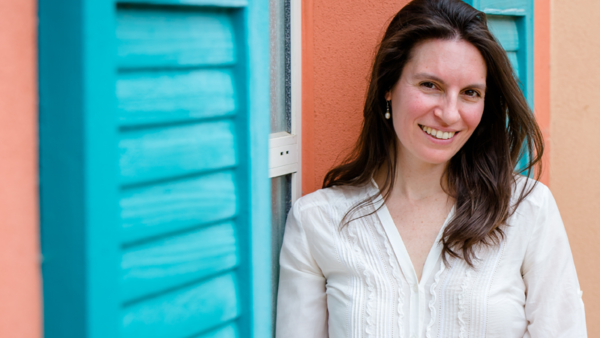Just last week I gave a workshop at a private middle school which chose to dodge the sex ed bullet by not offering any at all. The parents had such different views on what middle school sex-ed should look like that the private school simply opted out.
How are things where you are? Is your child’s school or school district teaching comprehensive sex ed?
Two years ago, AB 329, The California Healthy Youth Act, was passed.
Before, California public schools were not required to teach sex-ed at all – legally, they could opt out. No longer! Now every California public middle school and high school must by law teach comprehensive sex education.
It’s the strongest sex-ed law in the country.
In celebration, Phyllidia Buringame from the ACLU and I were interviewed on the radio show, About Health, on KPFA 94.1 FM. Click to listen to the show, Teens, Sexuality, and Health: Effective Sex Education at Home and at School.
Two days later, I was attending a program at Support For Families, a nonprofit dedicated to helping families navigate the complexities of raising kids with disabilities and/or special needs. I mentioned the new law to the director, and she asked if I knew anyone who specialized in sex-ed for special needs kids or parents. I got curious and spent some time searching the internet.
There are some discussions of the challenges faced by special-ed kids. Actually, these are challenges we all face, but having a disability makes these tricky lessons even harder to learn. Understanding them can help our kids strengthen their own skills and relate to people with special needs in a more empathetic way.
Here are the top 5 challenges that special needs kids face in connection to sex-ed:
1. A mismatch between mental age and physical development
Everyone is sexual. Kids with developmental delays, disabilities, or other special needs go through puberty too. You knew that, I’m sure, but when a kid’s mental age doesn’t match their body development, parents and caregivers can be even more uncomfortable talking about sex. Sometimes those conversations are avoided until after the child acts out in a sexually inappropriate manner. When that happens, others may see these kids as immoral or dangerous when the kids are actually innocent and undereducated.
2. Difficulty with the public-private continuum
Kids with special needs may not understand what behaviors or information can be public and what should be kept private. They may need explicit rules to avoid serious social mistakes. For example, a kid might not know what counts as confidential information and may break a confidence or start rumors unintentionally. Similarly, they might not know when it’s important to tell a trusted adult about a troubling secret.
3. Difficulty with the friend-stranger continuum
Every day, we have people in our lives who are family and close friends, not-so-close friends, acquaintances, and strangers. Kids with special needs may not understand the behavior conventions for each of these tiers. They might try to hug a stranger, for example, or they may be overly polite or distant with close friends. On the other hand, they may not have a sense of who has the “right” to act in a more intimate way with them, such as asking personal questions or offering rides or gifts.
4. Challenges with non-verbal communication
Kids on the autism spectrum in particular have difficulty with non-verbal communication and will need help understanding facial expressions, body language, and tone of voice. One parent told me about a boy at their child’s school who developed a crush on a girl and repeatedly asked her out on dates, despite the girl’s clear discomfort, and was eventually charged with sexual harassment. That’s a harsh lesson which could have been taught more gently.
5. Higher rates of abuse
Kids with special needs are MUCH more likely to be victims of abuse, sexual or otherwise. If care takers are needed to help the child shower or use the toilet, the opportunities for sexual abuse increase dramatically. The best prevention is to teach the child to be independent and take care of their own hygienic needs as early as possible. That way, the child doesn’t have to judge who can see and touch their private parts and who can’t.
Be on the lookout for each of these challenges.
Each of the challenges outlined above are ones we all fumbled with until we gained some level of mastery. These lessons usually aren’t explicitly taught, and some of us pick them up more readily than others. Even if your child isn’t a kid with special needs, they might be developing early, or challenged by non-verbal communication, or they might have trouble discerning where someone falls on the friend-stranger continuum and how to treat that person. These gray areas are trickier to figure out, and that’s true for all of us.
Discuss each of these tricky gray areas with your child, and let them know that other kids might be confused about them. Help your child understand the social awkwardness that they might be seeing in a peer with special needs. A little empathy will go a long way in helping our kids understand and navigate the social dynamics they’re facing.
Lastly, if you are the parent of a special needs child who is in middle school or high school, ask about how sex-ed will be taught to your child. Check to see if these five challenges are being addressed in the curriculum.
We’re all trying to teach our kids that a text message sent to their bestie in the restroom isn’t actually private – that they’ve lost control of words and pictures sent into cyberspace.
If you’ve had success, tell us what worked for your family! Comment below and tell us how these 5 challenges are going for your kids.
In support of you,
Anya













2 Comments. Leave new
Hi Anya,
I work for Health Connected, a sexual health and relationships education organization delivering awesome comprehensive sex ed here on the Peninsula, and around California. We have a program called Teen Talk AAA (Adapted for All Abilities) designed for children with special needs. Our educators that serve in additional needs classrooms are trained and experienced both in special ed and sexual health education. Good news!!
Such good news! My friend Katie Thune of Sexuality for All Abilities has also been working on tailored sex ed curriculum for special needs kids. So glad this gap is getting addressed, as the need is real. Did you see the the Abused and Betrayed series that NPR put out?